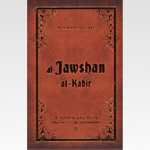BALANCE IN SOCIETY
The social framework prevalent today in most Muslim countries is not Islamic. Many places are characterized by monstrous and oppressive conditions for the poor, rampant corruption, poverty, and need. A few people have acquired substantial wealth and thus enjoy the numerous amenities and luxuries of life, whereas the majority do not even receive two square meals a day. An Islamic social order stresses simple and austere efforts that are free from ostentation. The Messenger strove to bridge the gap between the rich and the poor, the high and the low. He advocated a society in which one sector would not exploit another, for Islam seeks a balanced life that represents the equilibrium of social forces.
The fullest development of humanity’s potential can be achieved through the implementation of Islamic principles. The optimum level of civilization, which embodies the maximum well-being, can never be possible without spiritual and moral development. All Islamic principles, which descend from Divinity, are perfect and absolute. The Islamic approach is therefore just, natural, humane, and perfectly balanced and rational.
Abu’l-Fazl Ezzati outlines the Islamic economic system as follows:
- Islam represents a complete way of life. There is no compartmentalization of human activity is Islam. Its economic policy is, therefore, an integral part of the religion of Islam.
- Islamic economic system is based on equality, justice, moderation, and collective self-sufficiency.
- Man’s piritual development is fundamental but his physical welfare is instrumental.
- Islam is based on faith in God, Who has given man the capability to choose between good and evil, and assume full responsibility for his conduct. “Man has only that for which he makes effort, and and this effort will be seen.” (53:39-40)
- Islam is a universal system embodying eternal values which safeguard man’s rights while constantly reminding him of his obligation to himself and society.
- Islam forbids exploitation and monopoly in all forms and strictly prohibits unearned interest such as usury, gambling, betting, etc.
- Islam honors labor and contracts, enjoins work and toil, encourages man to earn his own living by honest means and to spread his earnings.
- Islam encourages mutual helping and never likes “wealth to circulate among the rich only” (59:7). Every member of the Muslim community feels obliged to help his poor brother while he is equally entitled to live a private life and to own property.36
Senturk, Omer Faruk. “Charity in Islam” Tughra Books Press. January 2007.
Related Posts
- November 03, 2013
- 0 Comment









